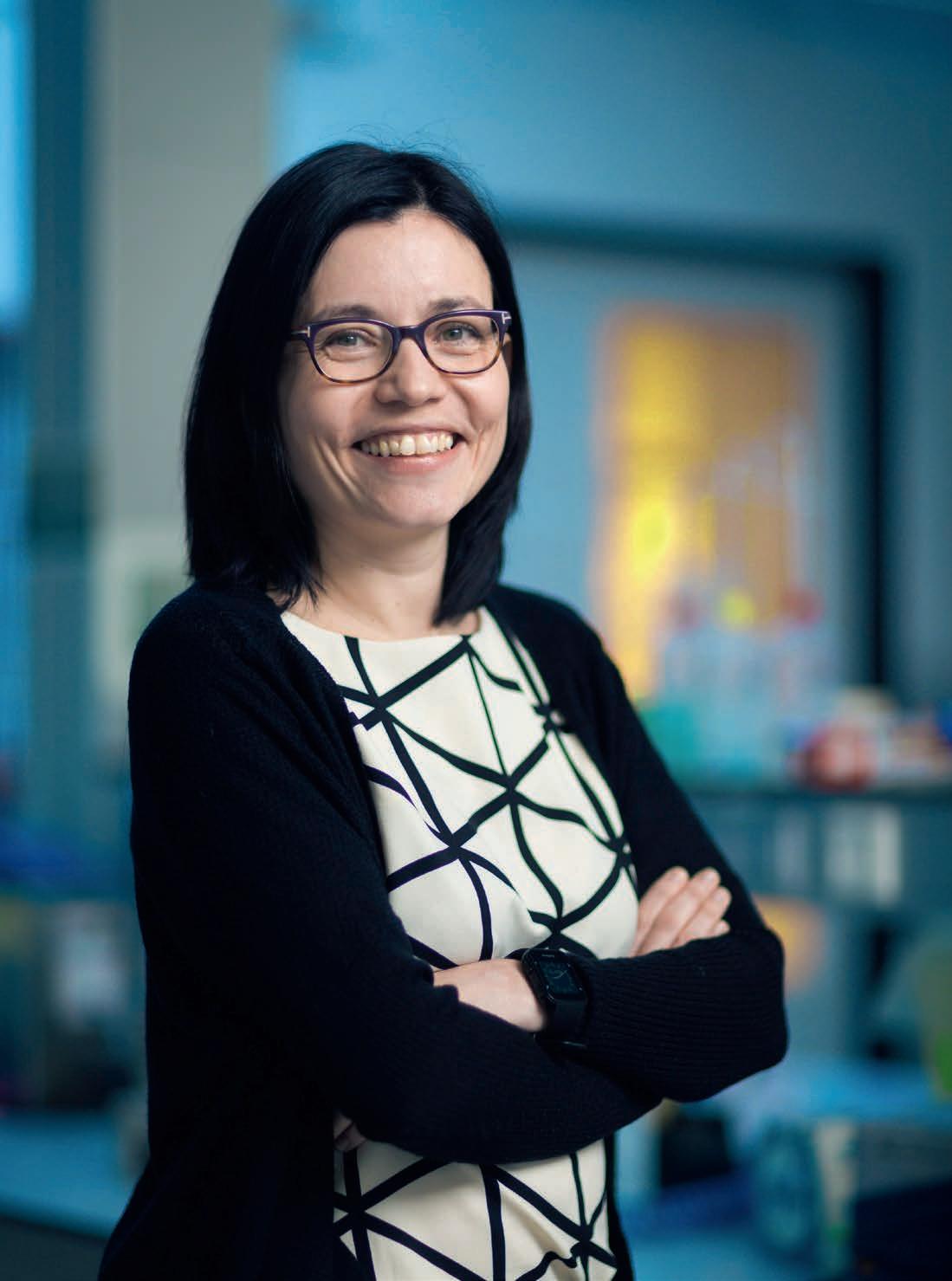
4 minute read
Marco Raaben
SBD | EDUCATION
Support with drawing up joint doctorate agreements
Advertisement
Frank Leferink’s work benefits from the so-called European joint doctorate networks, opportunities for scientists to take part in projects that transcend sectors and national borders. Strategic Business Development served as a sounding board to the definition of UT participation in these networks, and assists with project management. ‘Do not underestimate the role that SBD plays.’
Text:
Stan Waning
Photos:
UT archive
‘O ur MSCA projects in SCENT (Smart City EMC Network for Training) provide innovative opportunities for career and knowledge exchange by facilitating international and inter-sectorial mobility for researchers’, Leferink says.
The Project Coordinator knows that a joint doctorate is not for everyone. ‘For now, only a fairly small group of scientists has taken on that challenge. The competition is fierce.
The success rate lies between seven and nine percent. We currently have five ongoing projects in our group. UT is coordinating three of those, and they will ultimately result in a joint doctorate for the involved doctoral candidates. This means that the doctoral candidate will receive guidance from multiple European universities in her/ his project. At the moment, nine doctoral candidates who work at UT are taking part in these projects, alongside ten others who are not contracted by the UT.’
Reviews and feedback
According to Leferink, the importance of SBD’s role in these projects should not be underestimated. ‘SBD’s grants advisors serve as a sounding board during the application process and as an important source of information due to its ties to Brussels. Furthermore, they offer reviews and feedback. SBD’s project managers also assist in the drawing up of the Joint Doctorate Agreement between the universities or the graduate schools, which is quite a daunting task because of the many - usually minute - differences between each institution’s regulations.’
Leferink advocates for even deeper support. ‘We could also use brokers during project applications, facilitating collaboration between different universities. For scientists, it is good to know that there are opportunities waiting to be seized. There is a growing focus on joint doctorates at the European level as well.’ Multiple universities being involved in a single project is nothing new, Leferink knows. What sets these projects apart, however, is the fact that at least three universities from different countries are involved. In that context, having to deal with differences in insights and regulations is to be expected, Leferink says. ‘That is exactly where SBD plays such an important role; to share experiences, for example. I think we are doing good work in Twente in this regard. Wonderful things are happening, but it is important to keep improving.’
‘It is inspiring to work in a multicultural environment with international experts. It is a great challenge to manage the consortium to achieve ambitious goals, such as the recently established joint doctorate with three international universities in SCENT. The feeling to achieve such important milestones together with other scientific breakthroughs is fantastic.’
Marco Raaben
Project Manager

SBD | BUSINESS
During the corona crisis, the number of cybercrime incidents grew by 600%. Likewise, everyone can still remember the recent hacks of institutions such as municipalities and hospitals. It is clear that the new Twente University Centre for Cybersecurity Research, or TUCCR, has its work cut out for it. SBD supported the onset of this initiative in which researchers from the University of Twente and representatives from various businesses and institutions work together.
‘T here is an enormous need for more knowledge about cybersecurity. TUCCR brings together all expertise and research in this field,’ says co-initiator and Professor of Secure Data Management,
Willem Jonker. The people involved in the initiative not only consider the technical aspects of cybersecurity, but also business processes, ethics and human behaviour. ‘It goes without saying that we have a solid technological foundation. Still, there is a reason why the UT’s slogan is ‘High Tech, Human Touch.’ No matter how secure your system is on paper, when employees choose easily guessable passwords or write their passwords down on sticky notes, all your hard work will be for nothing. The human factor must always be taken into account.’
The centre opened its doors on March 5 this year. Getting to that point, took a lot of hard work and preparation. ‘SBD helped us out tremendously, e.g. by establishing contacts with partners and entering into partnerships, assisting with the organisational structure and design as well as other practical matters such as contracts and legal aspects. Its strength lies in their ability to design an initiative in a way that ensures it can be embedded easily within the overall structure of the UT itself. Of course, SBD has extensive experience with supervising public-private partnerships, so their approach is highly effective. TUCCR is now up and running and properly embedded into the organization’, Jonker says.
TUCCR will now move on to the execution phase by setting up and implementing cybersecurity projects. Students will be involved in these projects, which contribute to the development of their talents. ‘We are already dealing with a major shortage of computer scientists, especially in the technically complex field of cybersecurity. We also hope to use this to draw new talent to the region, which in turn is needed to keep existing businesses in Twente and stimulate the development of new businesses. This will allow us to strengthen the economy of the region.’
In this way, both the region (by attracting and retaining talent), business and institutions (by a wealth of expertise and research) and students (by enriching the study offer) benefit. It is TUCCR’s ambition to grow in the years to come. ‘Once again, we can rely on SBD. If and when we are ready to expand our operations, we can count on their advice and expertise in various fields.’








